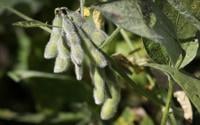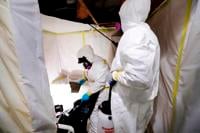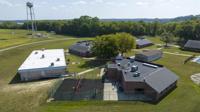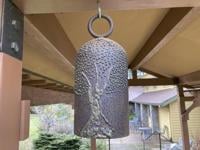Two young people who were diagnosed with cannabis-induced psychosis are supporting an expert panel's recommendation that Health Canada establish a standard dose for cannabis, saying it would help nudge people toward safer consumption.
In a report released last week, the panel convened by the federal government to study legislation that made cannabis legal in 2018 came up with 54 recommendations, including increasing the excise tax on high-potency cannabis, revising packaging and labelling rules and introducing other measures to mitigate health risks to youth.
Cannabis-induced psychosis is a particular concern as the concentration of tetrahydrocannabinol, or THC, which causes a euphoric high, has increased in recent years and could affect adolescents' brain development, noted the experts who called for "total THC" labels and standard doses to be listed on cannabis product packages.
The panel said a standard dose would note the amount of cannabis that should be considered a single serving and help users make better choices.
Kalpit Sharma of Aurora, Ont., and Heath D'Alessio of Montreal, both 24, had different paths to cannabis use but were each diagnosed with psychosis due to heavy consumption of the drug.
While Sharma was tormented by voices, and even hallucinated warnings that his family would die, D'Alessio saw distorted faces and at one point couldn't recognize people.
A standard cannabis dose would help people make informed and safe choices, said Sharma, adding it's important for consumers to be aware that people can react differently to a certain amount of THC so they should start with the lowest dose possible.
He said he began smoking cannabis in India, a year before moving to Canada in 2018 as the drug was legalized.
"At 19, I started buying weed at dispensaries. And slowly, my thinking was that the more THC I smoked the better high I'm going to receive," Sharma said.
About a year later, he started hearing voices that interfered with his studies in psychology at Toronto's York University. Before long, the hallucinations came with frightening warnings about his family.
"I would just be in this constant fear that my family's going to die, that somebody's going to get them, that I have done something wrong, that I'm the root cause. The delusions and paranoia, on top of the voices, were just making it really difficult to survive."
After Sharma ended up in hospital and was diagnosed with cannabis-induced psychosis at 21, he said he stopped using pot but kept hearing voices. He also learned that a cousin was experiencing similar mental health issues, unrelated to drug use.
Sharma got help through the Centre for Addiction and Mental Health and continues taking medication. He has wondered if the cannabis triggered his mental health condition at an earlier age than it may otherwise have been diagnosed.
"If you do have a family history of psychosis I would say consult a medical professional before consuming cannabis," said Sharma, a volunteer adviser on cannabis and psychosis with the Schizophrenia Society of Canada.
D'Alessio said they started using cannabis at age 14 as a way to socialize with peers and to deal with anxiety and depression that started about a year earlier.
"I was a pretty daily cannabis user and identified openly as a stoner in high school," said D'Alessio, adding they quit "cold turkey" shortly after the hallucinations of "less human" faces began. They were diagnosed with cannabis-induced psychosis at age 17.
D'Alessio, also an adviser with the Schizophrenia Society of Canada's cannabis and mental health project, said it's important to list a standard dose on cannabis products so people can be mindful of how their use may affect them.
"Ten milligrams of THC in an edible will affect you much differently than 10 milligrams that you smoke, but I think that's where we need more than just a standard dose on labels," they said. "We need more fulfilling drug education for the public in general as well as for young people specifically."
Education is especially needed if young people may be getting cannabis through the unregulated market, D'Alessio said. In Quebec, the legal age to buy pot is 21. Consumers in the rest of the country can purchase it at age 19, except in Alberta, where the legal age is 18.
The expert panel, which includes a clinical psychologist who studies the impact of substance use on the developing brains of adolescents as well as cannabis-induced psychosis, said in an email via Health Canada that establishing comparable units for different product classes is complex, and there are large differences between how cannabis can be consumed, metabolized and experienced.
"Despite the complexity, the panel feels it is important to give consumers simple, easy-to-understand information about the level of intoxication they can expect from using a cannabis product," it said.
Health Canada said it is reviewing the panel's recommendations.
Mental health issues have long been associated with heavy cannabis use, and the latest Canadian study to make that link was published in February in the Lancet's open access journal eClinical Medicine.
It analyzed the health data of 12 million Ontarians between 2008 and March 2019 and found that while people of all ages who had a cannabis-related emergency room visit were at higher risk of developing new anxiety disorders, the risk was particularly great for males up to age 24.
While Health Canada said in its email that a standard dose for cannabis would be akin to a standard drink for alcohol, neither the federal nor provincial governments have acted on the January 2023 recommendations for mandatory labelling of alcohol containers issued by the Canadian Centre on Substance Use and Addiction.
The centre called for labels to indicate the number of standard drinks per container, based on the concentration of alcohol in a beverage, as part of its latest guidance on alcohol use that recommends limiting consumption to two drinks per week.
The guidelines on Health Canada's website continue to list limits of two standard drinks per day for women and three drinks for men, based on recommendations from 2011.
This report by 香港六合彩挂牌资料 was first published March 25, 2024.
Canadian Press health coverage receives support through a partnership with the Canadian Medical Association. CP is solely responsible for this content.








































